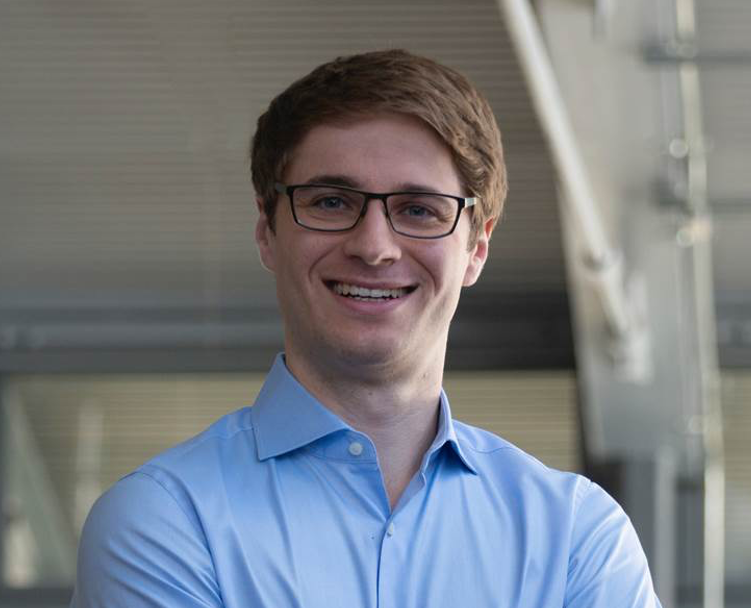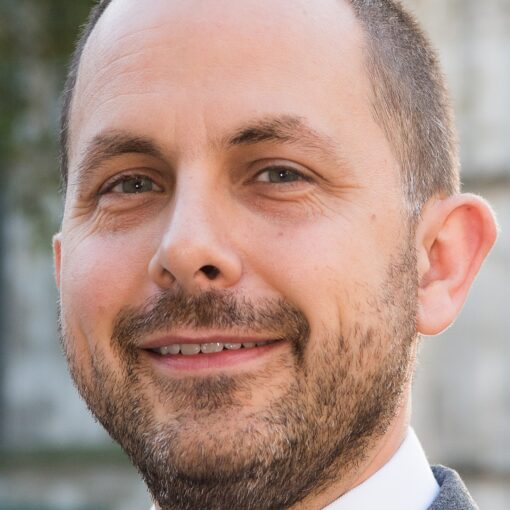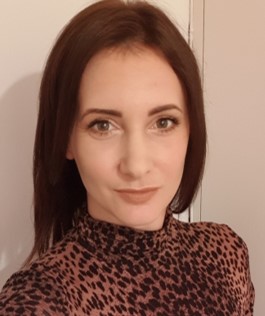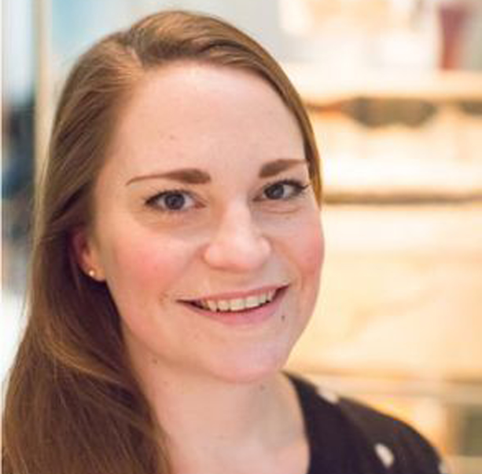Ph.D. in Space Systems, Massachusetts Institute of Technology (2020)
| Manager, Asset Management (O3b mPOWER) | |
|---|---|
| SES | |
Year entered into a non-academic position: 2020
Job highlight: I’m responsible for the development of intelligent software tools to optimize the management of demand and capacity across SES’s fleet of communication satellites – with particular focus on the innovative O3b mPOWER constellation.
My research training set me up to… digest and represent the most complex techno-economic problems in an analytical structure, communicate them, and solve them as a team.
Left academia after: PhD
What’s your background?
I studied Mechanical Engineering (B.Sc.) and Aerospace Engineering (M.Sc.) at the Technical University of Munich. I had the opportunity to spend six months at the Massachusetts Institute of Technology to write my Master’s Thesis. During this time, I was captivated by the environment in the lab and around campus, and I decided to apply for a PhD in the same lab. SES approached MIT within the first few months of my PhD, and explored a collaboration with our lab on Artificial Intelligence for Dynamic Resource Management. It was an instant fit, and the research collaboration provided the foundation for my PhD thesis on Revenue Management and Resource Allocation for Communication Satellite Operators.
Why did you move away from academia?
My goal was never to stay in academia, and I was even hesitant to start my PhD after my application was accepted. However, I certainly do not regret deciding to work on a PhD, in fact the journey was much more rewarding than I anticipated. While I really enjoyed my stay at MIT, I felt it was time for me to move on and test my knowledge in the industry. There might be a time where I want to go back – who knows.
Is there anything you miss about academia?
Yes, certainly! For me, the greatest gift during my PhD was the opportunity to approach fellow researchers and professors and ask for input and advice. I never experienced hesitation in sharing knowledge and experience. Furthermore, the problems I encountered during my studies were cutting edge and very challenging. Working on these – and solving some – was very rewarding.
How did you get this job? Did you face any challenges when considering a move away from academia or applying for the role?
Getting this job was straightforward for me as I was in touch with SES as part of the research collaboration. We had regular meetings and I had the pleasure to travel to their sites in Luxembourg, The Hague, and Washington DC. Closer to my graduation, SES and I were looking specifically where there could be a good fit within the company. After a few formal interviews I received the offer. Since my graduation was during the height of COVID-19 (June 2020), the contact with the research sponsor certainly helped to get the job during these hard times. I did not face any major challenges when moving from academia to industry.
What motivated you to/why did you choose the sector you transitioned into?
I’ve been excited about Engineering since my childhood. During my undergraduate degree, a fabulous “Introduction to Space” class really spark my passion for the Space Industry.
During my Bachelor’s and Master’s Thesis, I studied Commercial Human Spaceflight problems, and always enjoyed the techno-economical aspects. However, I noticed that it is very challenging to find industry jobs in the Human Spaceflight field. This is mostly done by government organisations, and I always sensed that there was never a convincing business case for private companies in these endeavours (at least not yet).
Therefore, the redirection of my focus to the (at least equally exciting!) private Satellite Communication Sector turned out to be perfect. Working in a private Sector that provides value to the world by connecting people is very rewarding.
Did you think you had the skills required for your current position before you started? Were you right?
Yes, I knew that I had the right skills as I understood SES’s challenges and knew the company structure fairly well once I applied. During the interview process, I had long conversations with my managers to ensure the position is the right fit and the expectations are set right. So far, everything turned out as anticipated.
How did your PhD prepare you for your current job? For example, what were the transferable skills that you developed during your PhD that are most relevant to your current job?
I think this is a very individual question and, in my view, most people have great flexibility to design a PhD that supports their desired career path. In addition to cutting-edge research, I wanted to achieve two goals during my PhD:
First, improve and enhance my rather basic coding experience as I realised that these are in high demand in almost any industry. I believe, in a couple of years, coding will become as essential as Word Processing skills were some decades ago, and I didn’t want to fall behind.
Second, to get additional management and leadership experience in order to start in a role with more responsibility. I felt that the jobs I could get after my M.Sc. were rather generic, and I found that individual contributor engineering roles were not in line with my aspirations. Taking leadership of the research collaboration with SES provided me with a 2.5-year opportunity to enhance my skills and work with 10 students over time.
I’m very lucky and grateful that the current position combines these skills, and that I directed my PhD to improve these skills.
Did you have any preconceptions about your sector that proved to be wrong?
I was surprised by the partnerships the Satellite Communication sector has. SES is not only focused on very strong partnerships with suppliers and customers, but also supports its competitors when anomalies occur. For example, when Intelsat 29e encountered an anomaly, capacity was transitioned to SES and customers remained connected. It felt like the satellite communication operators worked together to provide the best experience possible to their customers.
With new satellite operators entering the market, such as SpaceX and Amazon, it will be interesting to see how the competitive landscape will change in the future and if the satellite communication sector can extend its market share.
Can you describe a typical week in your job?
SES is a global company with the main offices in the US and Europe, therefore I spend most of my morning in the US in meetings. In the afternoon, I’m working with our software vendors to guide their development, and review and approve customer capacity requests. Furthermore, I’m developing my own internal software tools that make capacity and demand management more efficient. I try to ensure I have a couple of hours per week to think about the mid/long-term goals of the company, how the daily decisions support this, and what pieces of research could support the company’s strategy.
What’s the workplace culture like? Please include comments on work-life balance, flexibility, remote working?
SES works very hard to have an empowering and “modern” culture and they succeed at that. The company is focused on objectives and personal development. Discussions are open with everyone being able to voice their opinions. The office hours are flexible to everyone’s needs and since it is a European company, there are enough vacation days to reconnect and recharge. With COVID, remote working is the norm, but also during “normal” times, SES supports various remote working agreements, and is very flexible.
What are your favourite parts of your job?
The favourite part of my job is that I need to have the holistic view across different teams, especially across the technically, commercially, and customer focused parts of the company. I learn a lot about how things work and where my role fits into the bigger picture.
What are your reflections on your (future) career path?
I feel I can continue progressing my career at SES. I want to further work on automating and connecting the dots between customer requests and technical implications.
Do you have any advice for current graduate students and postdocs considering a career outside of academia?
Network, get some internships, and try things. If you are not sure what to do, or if you have a different path in mind, give it a shot. There is usually not much to lose, but always experience to be gained.
It also helped me to focus on skills instead of domains or classes that I took. Companies will hire you for the skills that you have, not for the classes that you took. If your degree is in Mechanical Engineering but you are a world-class coder, then software companies will be highly interested in you.
Can you recommend any relevant resources, organisations or events that might help somebody new to the sector find out more about it?
One of the cool things about the space industry is that the academic community is wonderful. There are plenty of conferences to go to (or rather to virtually connect to nowadays), many young researcher organisations, and young professionals organisations. You can also always shoot me an email and I will do my best to get you excited about Satellite Communication, just as I am!
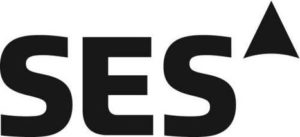 About SES
About SES
SES is the world’s leading satellite operator with over 70 satellites in two different orbits, Geostationary Orbit (GEO) and Medium Earth Orbit (MEO). It provides a diverse range of customers with global video distribution and data connectivity services through two business units: SES Video and SES Networks. SES Video reaches over 355 million TV homes, through Direct-to-Home (DTH) platforms and cable, terrestrial, and IPTV networks globally. The SES Video portfolio includes MX1, a leading media service provider offering a full suite of innovative services for both linear and digital distribution, and the ASTRA satellite system, which has the largest DTH television reach in Europe. SES Networks provides global managed data services, connecting people in a variety of sectors including telecommunications, maritime, aeronautical, and energy, as well as governments and institutions across the world. The SES Networks portfolio includes GovSat, a 50/50 public-private partnership between SES and the Luxembourg government, and O3b, the only non-geostationary system delivering fibre-like broadband services today.
Further information is available at: www.ses.com
Why Join SES?
At SES we have a team of employees from all across the globe who work together to make a real difference in the world.
It’s an exciting time to join SES. We continue to expand our horizons into new technologies and new markets and that is exactly why we are always looking for new team members who can work with us to shape the future.
Whether it’s to help bridge the digital divide by connecting millions of people across the world; making it possible for people to stay connected while flying
10km up on a commercial airplane; or providing extensive satellite coverage of all of the world’s seas and ocean regions – we like a challenge.
We are proud of our company culture; it’s about how we deliver on our purpose and proposition.

